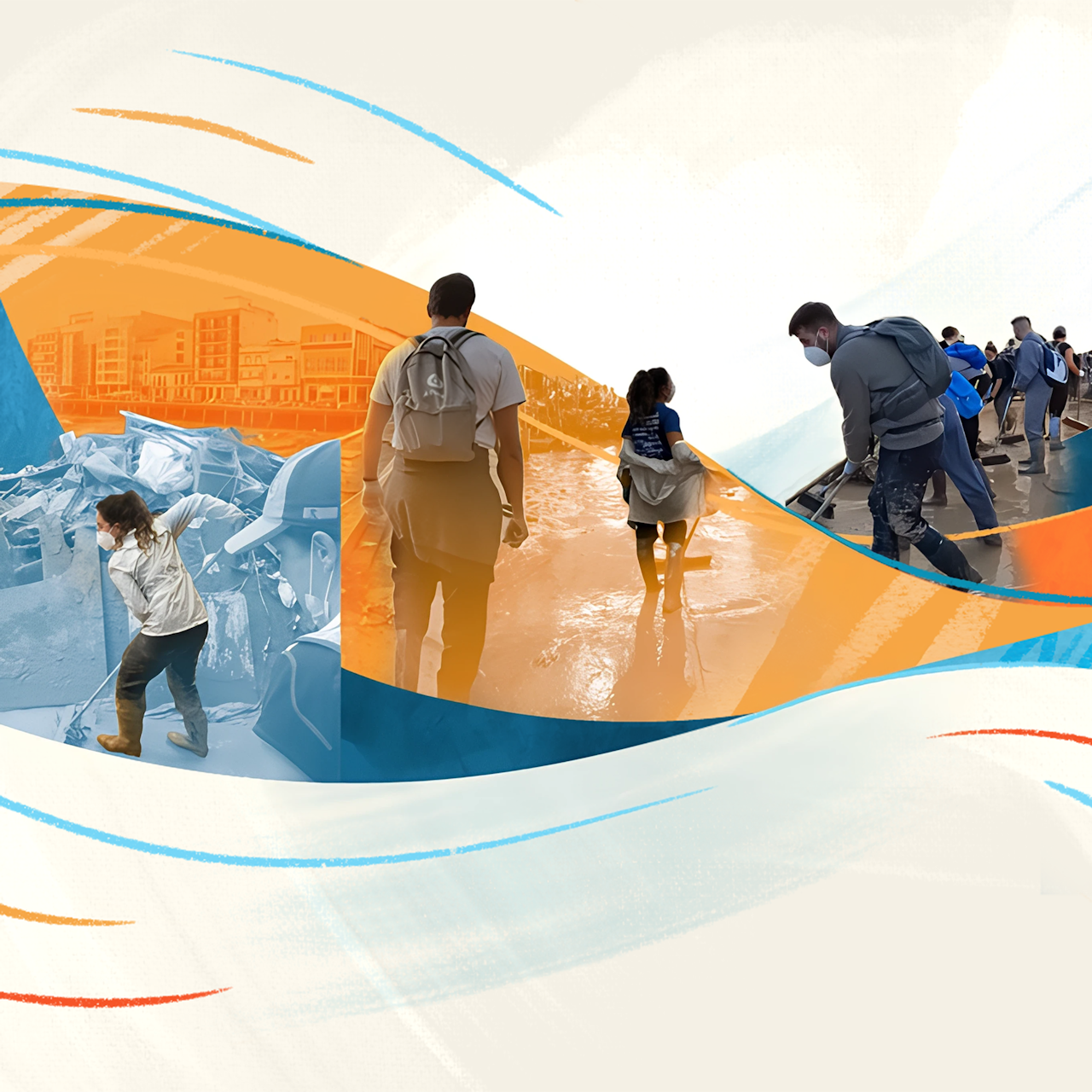The National Spiritual Assembly of the Bahá’ís of Spain offered the Bahá’í Centre in Llíria—a municipality of Valencia city—to house security personnel responding to the disaster. Over seven weeks, the Centre accommodated 476 police officers from 46 different localities across Spain, with 24 volunteers working daily to provide meals, laundry services, and a comforting environment during a traumatic time.
The Centre became a space for meaningful connection. “What began as practical aid transformed into a shared journey of learning,” notes Shabnam Majidi, a volunteer who helped at the Centre.
She added: “Officers would return each evening exhausted from their work in devastated communities, finding not just physical rest but genuine human connection. Many commented that the atmosphere of care and common endeavor gave them strength to continue their difficult work.”



